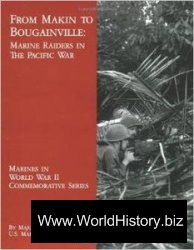1885 Indian National Congress Party is formed.
1906 Muslim League is formed.
1916 Mohammed Ali Jinnah leaves post as Congress president to join Muslim League.
1940 Muslim League passes "Lahore Resolution" calling for separate homeland for
Muslim Indians.
1947 British appoint boundary commission to divide India into Muslim-majority areas,
To be constituted as Pakistan, and remaining areas, to be constituted as India.
1947 (Aug. 15) Pakistan and India become independent as separate nations.
1948 First Indo-Pakistan war is fought over Kashmir.
1948 (Sept. 13) India invades Hyderabad.
1949 Awami League is founded in East Pakistan (now Bangladesh) to seek greater regional autonomy.
1951 Liaqat Ali Khan, successor to Mohammed Ali Jinnah, is assassinated.
1956 Pakistan's constitution declares country to be an Islamic state.
1958 Martial law is imposed.
1960 General Muhammad Ayub Khan is elected president.
1965 Second Indo-Pakistani war is fought over Kashmir.
Issue in 1948, called for a free and fair plebiscite in which Kashmiris across the whole of Kashmir could exert their right to selfdetermination and choose whether they wanted to join Pakistan or India.
Pakistan has supported this call, confident that it would win the votes of the Muslim majority of Kashmir. India has refused to do so, resting its claim to Kashmir not on popular will but on the Instrument of Accession signed by the maharaja at the time of independence.
India and Pakistan fought another war over Kashmir in 1965, and Kashmir also became implicated in the 1971 war between the two countries over Bangladesh. The cease-fire line after this war was called the Line of Control and marks the informal boundary between the Pakistani and Indian sides of Kashmir. There is a further line of control marking the remote part of Kashmir claimed by the Chinese, who fought a war with India in 1962.
1970 General Ayub Khan resigns; power is assumed by General Agha Yahya Khan; agitation in East Pakistan is led by Sheikh Mujibur Rahman.
1971 East Pakistan, supported by India, fights for its independence.
1971 (Mar. 26) East Pakistan declares its independence and is renamed Bangladesh.
1971 (Dec. 3) India mobilizes for war with Pakistan.
1971 (Dec. 16) Pakistan surrenders to India.
1972 Cease-fire line in Kashmir is agreed upon.
1973 End of martial law; Zulfikar Ali Bhutto becomes prime minister and initiates reforms.
1974 (Feb.) Pakistan formally recognizes independence of Bangladesh.
1977 Military coup puts General Mohammad Zia ul-Haq in power.
1979 Former premier Bhutto is hanged.
1979 Soviet Union invades Afghanistan, and United States offers support to
Pakistan; war refugees pour into Pakistan.
1988 General Zia ul-Haq is killed in air crash; Benazir Bhutto is elected prime minister.
1989 Insurgency in Indian Kashmir develops.
1990 Ethnic violence and charges of corruption lead to downfall of Bhutto government; Nawaz Sharif of Muslim League becomes prime minister.
1990 (Aug. 6) Army overthrows elected parliament.
After 1989 the major new development in the Kashmir situation was the rise of a domestic insurgency in the Indian-held portion. The Jammu and Kashmir Liberation Force, Hizbul Mujahideen, and Harkat ul-Ansar are just three of over a dozen guerrilla forces operating in Indian Kashmir with the aim of separation from India.
While some of the forces aim for a totally sovereign Kashmiri state, others aim for unification with Pakistan. They have joined together in an umbrella organization called the Hurriyet Conference, which calls for the implementation of the United Nations resolution on a free and fair plebiscite for Kashmiris.
India has engaged in a forceful counterinsurgency effort in its portion of Kashmir, and human rights groups around the world have criticized its disregard for the human rights of its citizens in Kashmir. Refugees fleeing the crackdown in Indian Kashmir crossed the Line of Control to the Pakistani side throughout the 1990's. Various Islamic groups from other parts of the world have
Pakistan Time Line (continued)
1990 (Nov. 6) Namay Sharif is elected prime minister.
1991 Islamic law (sharia) is incorporated into national legal code.
1992 Ethnic violence continues in Sind; continued insurgency in Indian Kashmir with widespread support in Pakistan.
1993 Benazir Bhutto returns to power.
1993 (Apr. 18) Pakistan's president dismisses third elected prime minister in five years
And appoints Balakh Sher Mazari as caretaker leader.
1996 (Nov. 5) Pakistani president dismisses Prime Minister Bhutto.
1997 Nawaz Sharif is elected prime minister; he charges Bhutto government with corruption.
1997 (Feb. 30) Pakistan Muslim League, headed by Nawaz Sharif, wins two thirds of
Legislative seats in national election, crushing former prime minister Bhutto's Pakistan People's Party.
1997 (Apr. 1) Sharif pushes through amendments to constitution to limit president's
Power to dismiss prime ministers.
1997 (Aug. 11) China strengthens border guard against Pakistan to prevent Uighur
Fighters from communicating with Kashmiri militants, thereby weakening its relationship with Pakistan.
Expressed their solidarity with the Muslim insurgents in Indian Kashmir.
In 1998 the Hindu nationalist government of India and the Pakistani government both held nuclear tests in disregard of world opinion. Policy makers in the United States feared that Kashmir could easily become the focal point of a future nuclear showdown in South Asia.
Fears of a nuclear war became greater in the years that followed the 1998 nuclear tests. During the summer of 1999, the Indian government became concerned over Pakistani infiltrators who were crossing over the line separating areas controlled by the two countries in the Kargil region of Jammu and Kashmir. At that time, also, the Indian air force shot down a Pakistani spy plane flying over the Indian state of Gujarat.
Pakistani-Indian tensions intensified further when five armed terrorists attempted to make their way into India's Parliament House in New Delhi on December 13, 2001, killing nine people
1997 (Dec. 2) Pakistan's chief justice is dismissed as new political disorders begin.
1998 (Jan. 1) Government brings corruption charges against former prime minister Bhutto, her husband, and her mother.
1998 (May 11) Yielding to domestic political pressure to demonstrate its strength,
India's government detonates five nuclear devices.
1998 (May 13) United States imposes sanctions on India and fails in attempt to
Pressure Pakistan not to respond to India's nuclear bomb tests.
1998 (May 28) Yielding to domestic pressures, Pakistan detonates its own nuclear
Devices in response to India's nuclear bomb tests.
1998 (June 7) Pakistan blames India for bomb blast on southern Pakistan train that
Kills more than twenty passengers.
1998 (June 11) Pakistan announces it will observe moratorium on nuclear weapons
Testing.
1998 (Aug.) Riots break out in Pakistan protesting collapsing economy.
1998 (Oct. 7) General Jehangir Karamat resigns as head of Pakistan's military forces
After criticizing government policies; it is first time disgruntled military chief has resigned instead of taking over government.
1998 (Nov. 6) U. S. government announces lifting of some sanctions on India and
Pakistan to reward their progress in nuclear weapons control.
Before they were killed themselves. The Indian government maintained that the terrorists were Kashmiri militants backed by groups in Pakistan. In January, 2002, President Musharraf of Pa-kistanbanned two of the groups blamed by India for the violence, but Indian and Pakistani troops continued to mass along the borders in Kashmir and threats of nuclear exchanges grew.
In June, 2002, the U. S. Defense Intelligence Agency estimated that if India and Pakistan were to engage in mutual nuclear attacks, 17 million people would be killed during the first few weeks, and more would eventually die from radiation, starvation, and other after-effects over a period of years. Although tension eased somewhat in the late summer of 2002, the threat of nuclear war in South Asia continued.
Islamabad, the capital of Pakistan, is very near Kashmir both geographically and emotionally. Kashmir has been a top issue of every leader of Pakistan and has a prime place in the daily news broadcasts to which Pakistanis listen. It is said that no politician
Pakistan Time Line (continued)
1998 (Dec. 2) Prime Minister Sharif meets with U. S. president Bill Clinton in
Washington, D. C.
1998 (Dec. 28) Government temporarily stops former prime minister Benazir Bhutto, who is under investigation for corruption, from leaving country.
1999 (Feb. 20) Prime Minister Sharif and Indian prime minister Atal Behari Vajpayee hold cordial meeting in Pakistan.
1999 (Apr. 15) Benazir Bhutto is convicted, in absentia, on corruption charges;
Bhutto, then in London, calls on fellow party members to demonstrate against Sharif's government.
1999 (May-July) Fighting between Indian and Pakistani-backed forces flares up in
Kashmir until both governments agree to resume talks on Kashmir's future.
1999 (Aug.) Indian air force downs a Pakistani spy plane flying over Gujarat.
1999 (Oct.) General Pervez Musharraf takes power and arrests Nawaz Sharif for treason.
2001 United States ends its economic embargoes against both India and Pakistan.
2001 (June 20) General Pervez Musharraf appoints himself president and says he will
Return the country to democracy.
2001 (July 13) President Musharraf arrives in New Delhi for talks with the Indian
Prime minister, but the talks end in failure.
In Pakistan could survive who failed to recognize Kashmir as a key national priority.




 World History
World History









